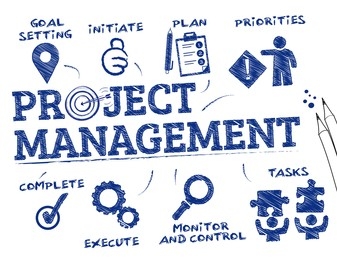what is crisis management?
Crisis management is the process by which an organization deals with a sudden emergency situation that threatens to harm the organization or its stakeholders. It involves identifying a threat to an organization and its stakeholders in order to mount an effective response to it. The goal of crisis management is to contain any emergency should it become a reality.
Crisis management begins with risk analysis, which is the process of identifying adverse events that may occur and estimating their likelihood of occurring. By running simulations and random variables with risk models, such as scenario tables, a risk manager can assess the probability of a threat occurring in the future, the best- and worst-case outcome, and the damage the company would incur should this threat come to fruition. Once the risk manager knows what they are dealing with in terms of possible risks and impacts, a plan is developed by the crisis management team to contain any emergency should it become a reality.
What are some common crisis management techniques?
Crisis management techniques are the strategies and tactics used by organizations to manage a crisis. Here are some common crisis management techniques:
- **Risk analysis**: Risk analysis is the process of identifying adverse events that may occur and estimating their likelihood of occurring. By running simulations and random variables with risk models, such as scenario tables, a risk manager can assess the probability of a threat occurring in the future, the best- and worst-case outcome, and the damage the company would incur should this threat come to fruition.
- **Crisis communication**: Crisis communication is the process of communicating with stakeholders during a crisis. It involves providing accurate and timely information to stakeholders to help them make informed decisions.
- **Crisis planning**: Crisis planning involves developing a plan of action for dealing with a crisis. The plan should include procedures for responding to different types of crises, as well as roles and responsibilities for key personnel.
- **Training and drills**: Training and drills are important for ensuring that personnel are prepared to respond to a crisis. This includes training on how to use equipment, how to communicate during a crisis, and how to respond to different types of crises.
- **Post-crisis analysis**: Post-crisis analysis involves reviewing the response to a crisis and identifying areas for improvement. This includes analyzing what went well during the response, what could have been done better, and what changes need to be made for future crises.
These are just a few examples of the many different types of crisis management techniques available today. By using these techniques, organizations can effectively manage crises and minimize their impact on stakeholders.
What are some common types of crises?
There are several types of crises that can occur in an organization. Here are some of the most common ones:
- **Financial crisis**: A financial crisis occurs when an organization suddenly loses a large amount of money, making it difficult to meet its financial obligations or service its debts.
- **Technological crisis**: A technological crisis occurs when an organization’s technological tools fail without warning, leading to a disruption in operations.
- **Natural disaster**: A natural disaster is an event caused by natural forces, such as a hurricane, earthquake, or flood, that can cause significant damage to an organization.
- **Reputation crisis**: A reputation crisis occurs when an organization’s reputation is damaged due to negative publicity or other factors.
- **Product recall**: A product recall occurs when an organization must recall a product due to safety concerns or other issues.
- **Cybersecurity breach**: A cybersecurity breach occurs when an organization’s computer systems are hacked or compromised, leading to the theft of sensitive information.
- **Workplace violence**: Workplace violence is any act of violence or threat of violence that occurs in the workplace and can cause harm to employees or other stakeholders.
These are just a few examples of the many different types of crises that can occur in an organization. By being prepared for these types of crises, organizations can minimize their impact on stakeholders and recover more quickly.
How to Manage Social Media Crisis?
Managing a social media crisis can be challenging, but there are several steps you can take to minimize the impact of the crisis.
Here are some tips for managing a social media crisis:
- **Create a social media crisis policy**: Before a crisis occurs, create a social media crisis policy that outlines how your organization will respond to a crisis on social media. This policy should include procedures for responding to different types of crises, as well as roles and responsibilities for key personnel.
- **Pause all campaigns and scheduled posts**: When a crisis occurs, pause all campaigns and scheduled posts to avoid any inappropriate or insensitive content being posted during the crisis.
- **Assess the impact**: Assess the impact of the crisis by monitoring social media channels and other online platforms for mentions of your brand or product. This will help you understand the scope of the crisis and how it is affecting your stakeholders.
- **Formulate a timely response**: Formulate a timely response to the crisis that is empathetic and addresses the concerns of your stakeholders. Your response should be transparent and honest and should provide accurate information about the situation.
- **Create actionable steps to address the problem**: Create actionable steps to address the problem that caused the crisis in the first place. This may involve making changes to your products or services or improving your communication with stakeholders.
By following these steps, you can effectively manage a social media crisis and minimize its impact on your organization.



